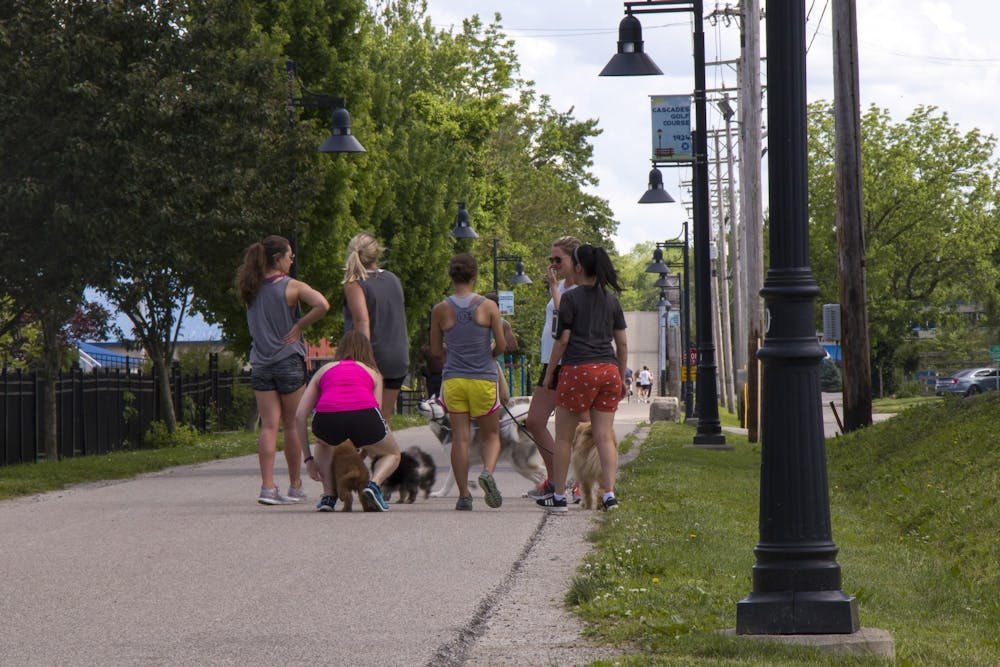Since being home, Helen Colby said she and her family have made a habit of taking walks, waving to their neighbors as they pass by. Colby, an IU assistant professor of marketing, wants this to last even after restrictions loosen and more people leave their house.
Colby said now is a great time to reconsider habits as most people have been forced out of their normal routine. How different people will re-enter the public sphere may differ. But as restrictions are loosening, there are health, financial and social habits to consider.
“Habits are much easier to change when we’ve been forced away from them for even a few days,” Colby said. “So a few weeks, this is the time to rethink some of those.”
Colby said, for example, if people used to stop by Starbucks on their way to work, but now they are not going into work, now’s a good time to reconsider whether they want to brew their own coffee or start going back to Starbucks.
As far as overall spending goes, Colby recommends being careful about people putting themselves in a position where they might be tempted to buy things they don’t need.
As self control goes down, impulse buying goes up, she said, and scarcity of anything makes people want things more. She said the best way to deal with that is to maybe go walk around or go to the park. Walking around and getting some sun exposure is also beneficial to people’s health, said Christina Ludema, assistant professor in the Department of Epidemiology and Biostatistics.
Limiting exposure to multiple stores is not only beneficial to people’s pockets. Ludema said limiting the number of stores you go in is good for your health as well. She suggests looking at a person’s social interaction outside the home in terms of a budget. She said to set a budget or limit for the amount of exposure to other people and contact you will have. Different activities or interactions may take up more of that budget.
Ludema and Brian Dixon, associate professor of epidemiology at the IU-Purdue University Indianapolis Fairbanks School of Public Health, said the safest spaces to gather are outside, with low amounts of physical contact with other people. But for someone it might be really important to get a haircut, although it’s higher risk with close contact and it being indoors, Ludema said.
“But then you can say 'OK I’ve spent my budget of socially interacting with the outside world, and so for the next couple of weeks I’m going to keep things pretty low key,'” Ludema said.
The budget for high-risk people remains low, and Ludema said they should limit social contact as much as possible. But for people who are not high risk, the focus is more about preventing community transmission.
Just because regulations and laws by the state may loosen, that doesn’t necessarily mean people should go to that maximum limit, Ludema said. For example, if a group of 25 people is allowed, Ludema said it doesn't mean now you should meet with 25 people.
Still, she said it is important to wear a mask and wash your hands, and Dixon recommends having back up sanitizing wipes or hand sanitizer. This is especially important when it comes to public restrooms in case there’s no soap in the restroom, he said.
“I think that the washing of hands before you eat or before you touch your face is always a good idea regardless of coronavirus,” he said. “I mean that’s always been a concern of public health.”
Any time people have to touch a door handle or any object others touch, he said they should be sure to sanitize or wash their hands. The same goes for leaving and returning home. He said to wash hands before leaving and when returning home and to sanitize between going other places.
Ludema also mentioned the idea of having a social bubble, where a couple people hang out with only each other. However, as someone who has researched STIs, she knows not everyone is transparent with their own practices, so this can be more risky. Dixon said self hygiene remains important to everyone’s health.
“At the end of the day, we’re responsible for our own health, but also humans are carriers of disease,” Dixon said. “So anything we can do to better take care of ourselves, then we’re doing the public a good.”




